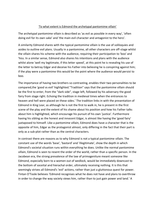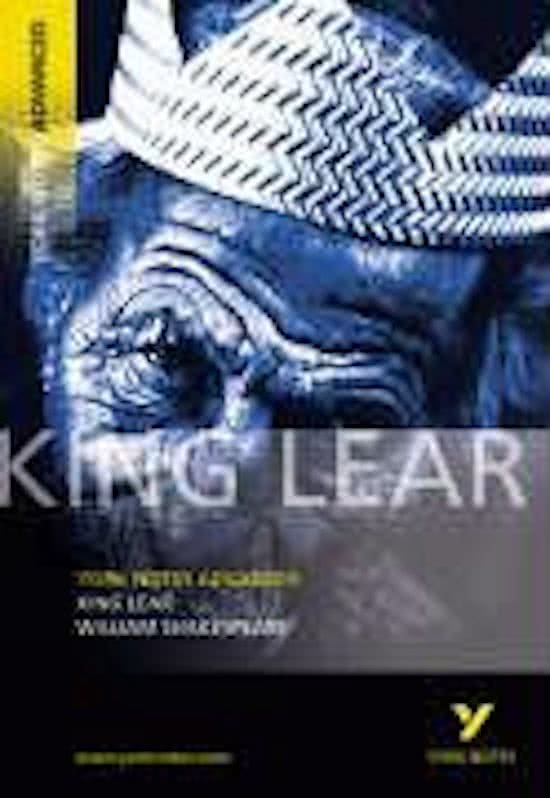'To what extent is Edmond the archetypal pantomime villain'
The archetypal pantomime villain is described as 'as evil as possible in every way', 'often
doing evil for its own sake' and 'the main evil character and antagonist to the hero'.
A similarity Edmond shares with the typical pantomime villain is the use of soliloquies and
asides to outline evil plans. Usually in a pantomime, all other characters are off-stage whilst
the villain shares his scheme with the audience, requiring their participation to 'boo' and
'hiss. In a similar sense, Edmond also shares his intentions and plans with the audience
whilst alone 'well my legitimate, if this letter speed', at this point he is revealing his use of
the letter to betray Edgar and deceive his Father into believing he is conspiring against him;
if the play were a pantomime this would be the point where the audience would persist to
boo.
The importance of having two brothers so contrasting, enables their two personalities to be
compared,the 'good vs evil' highlighted."Tradition" says that the pantomime villain should
be the first to enter, from the "dark side", stage left, followed by his adversary the good
fairy from stage right. Echoing the tradition in medieval times when the entrances to
heaven and hell were placed on these sides.' The tradition links in with the presentation of
Edmond in King Lear, as although he is not the first to walk in, he is present in the first
scene of the play and the extent of his shame about his position and how his Father talks
about him is highlighted, which encourage his pursuit of his own 'justice'. Furthermore
having his sibling as the honest and innocent Edgar, is almost like having the 'good fairy'
juxtaposed to himself. Like a pantomime villain, Edmond does have a character that is the
opposite of him, Edgar as the protagonist almost, only differing in the fact that their part is
only as a sub-plot rather than as the central characters.
In contrast there are reasons as to why Edmond is not a typical pantomime villain. The
constant use of the words 'base', 'bastard' and 'illegitimate', show the depth in which
Edmond's societal situation runs within everything he does. Unlike the normal pantomime
villain, Edmond is seen to resent the order of the world, rather than a specific person. In the
Jacobean era, the strong prevalence of the law of primogeniture meant someone like
Edmond, especially born to a women out of wedlock, would be immediately downcast to
the bottom of soceital and hierachal order, ultimately receiving nothing. It is this that
seemingly strives all Edmond's 'evil' actions, rather than just a gluttonous quest for power.
Fintan O'Toole believes 'Edmond recognises what he does not have and plans to overthrow
in order to change the way society views him, rather than to just gain power and land.' A





